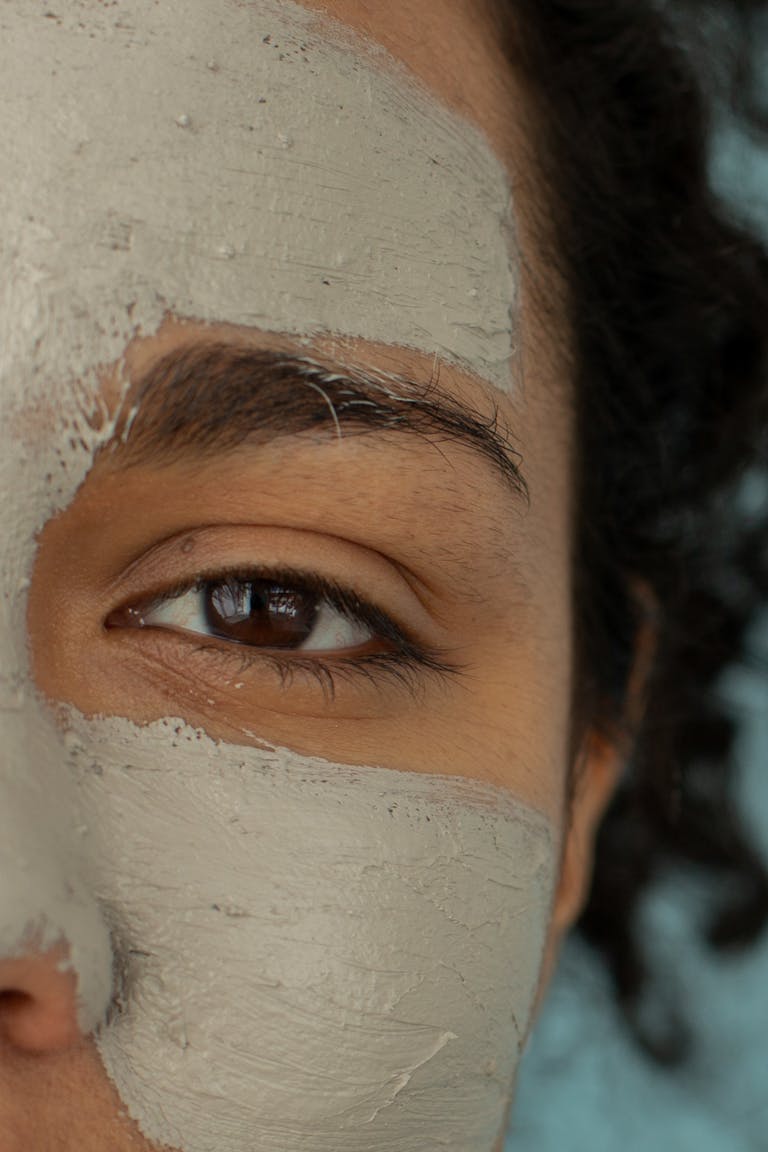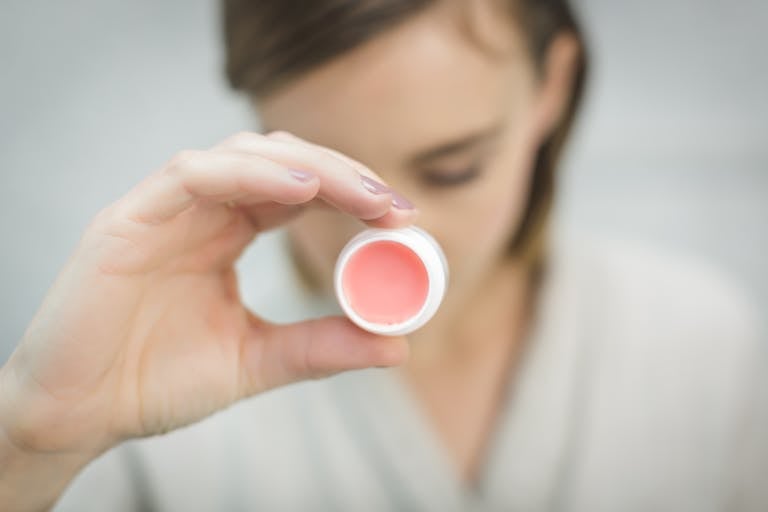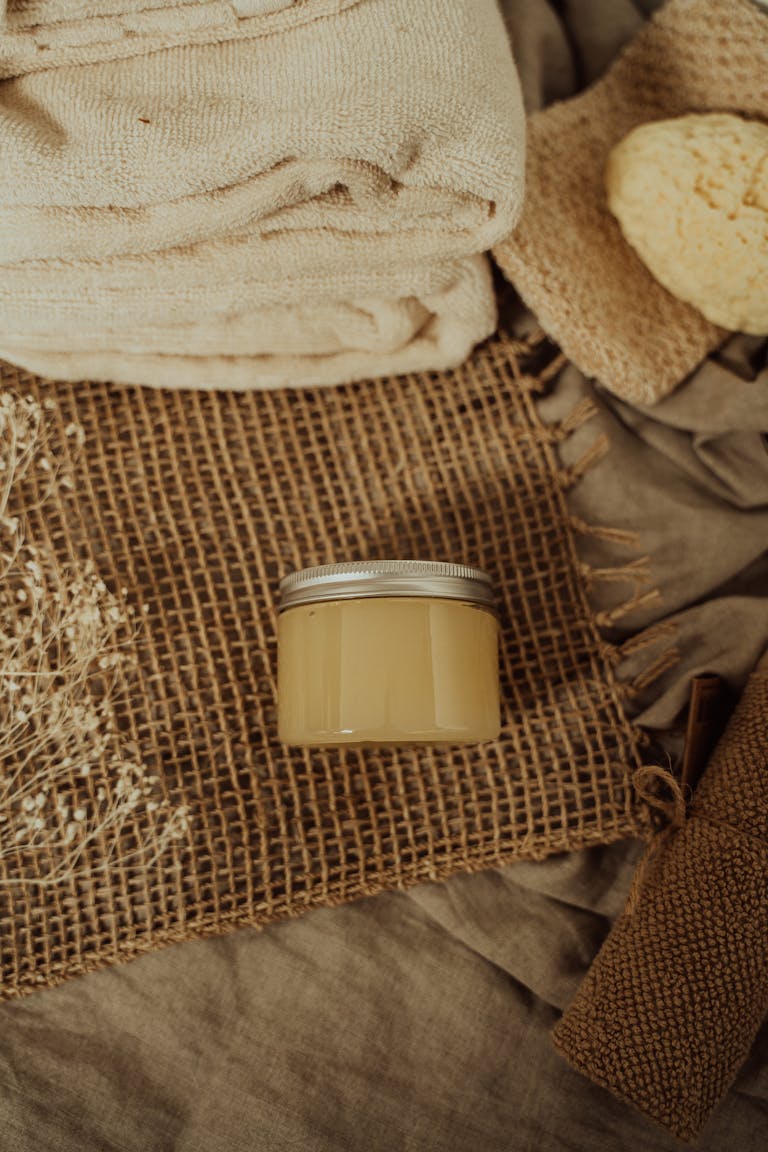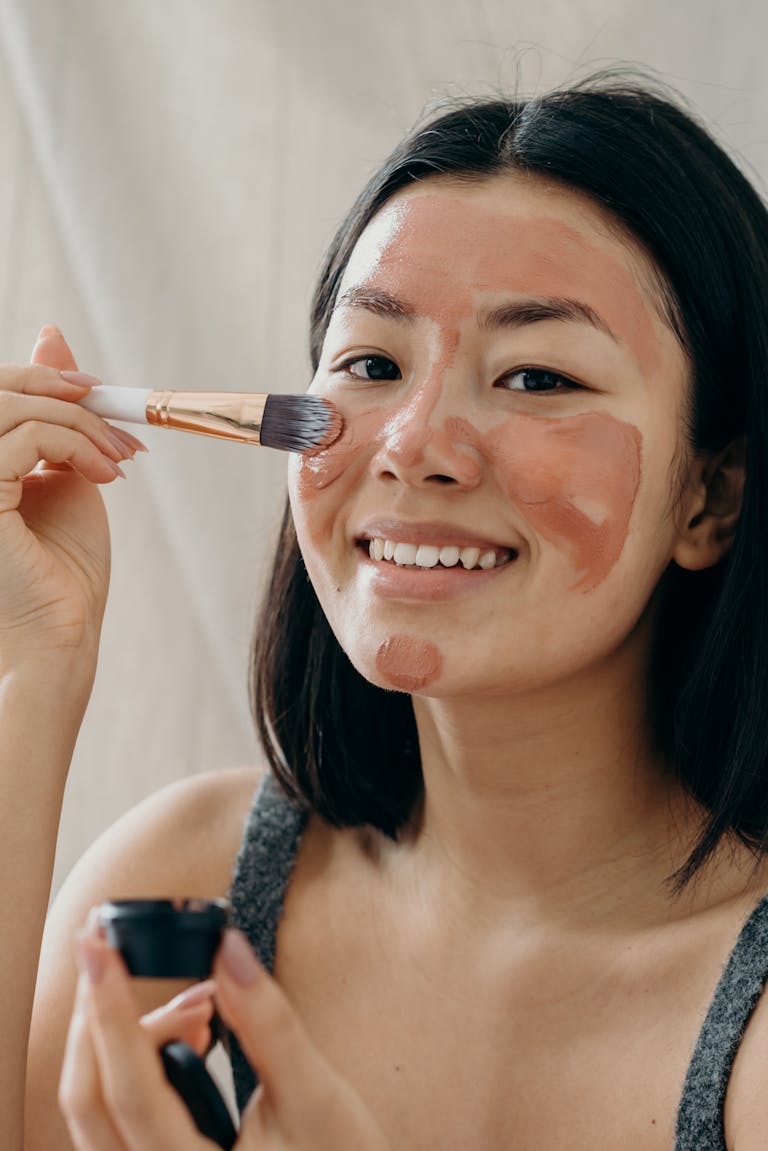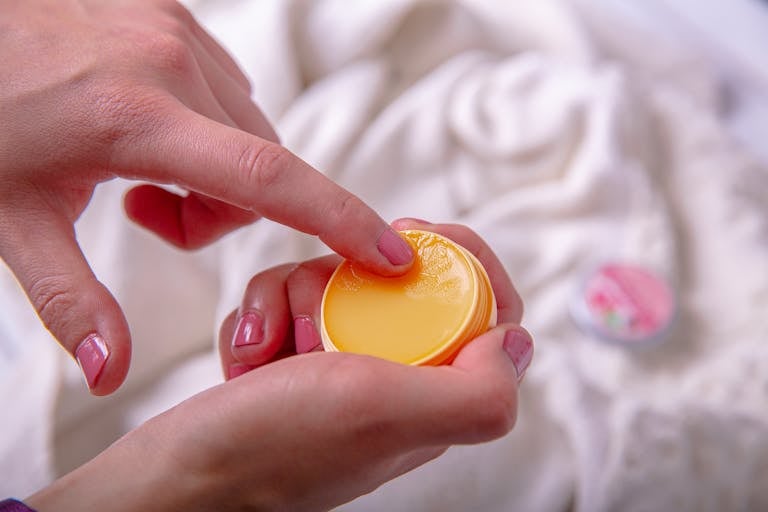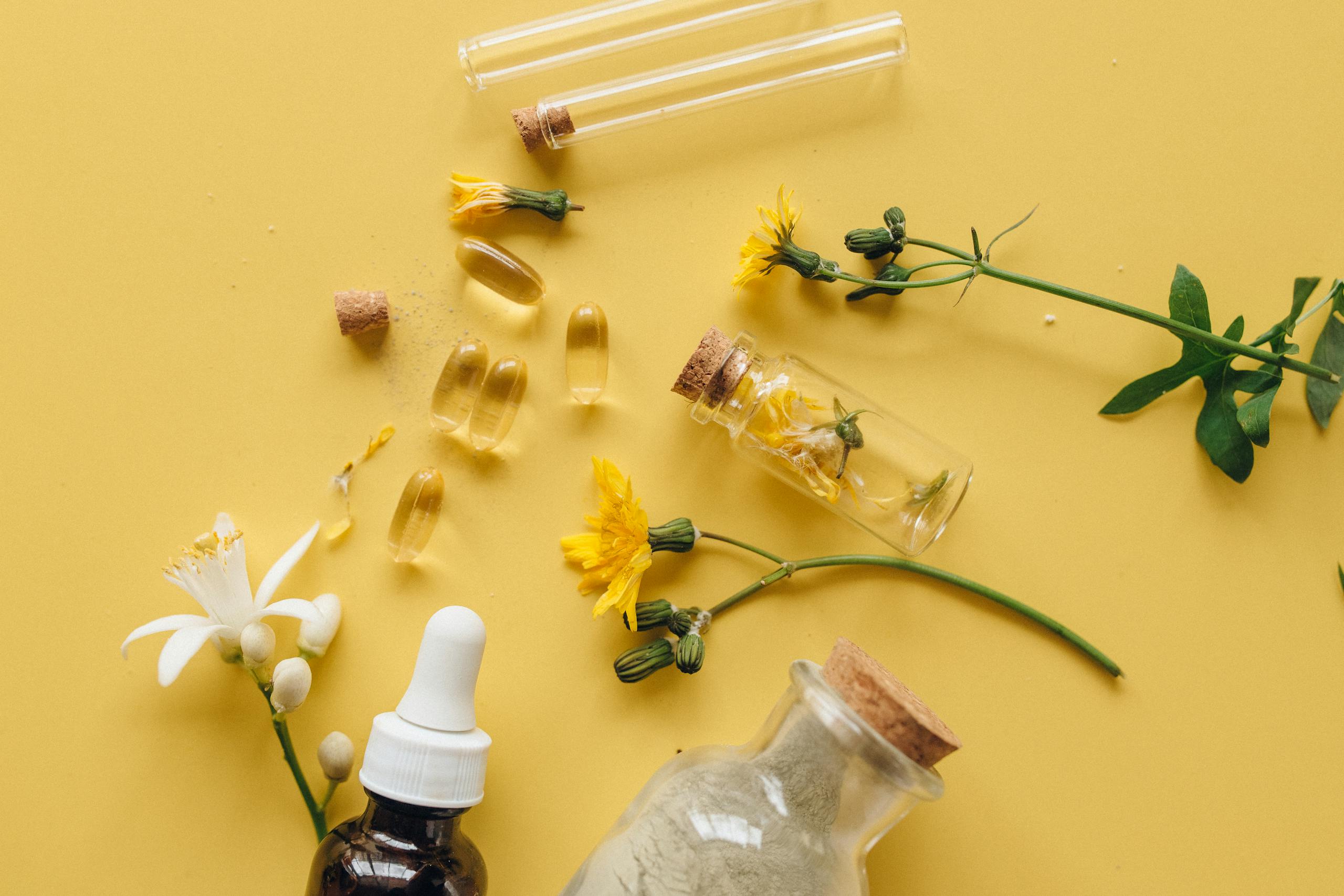
My journey into the world of natural ingredients began with a deeply personal quest: the desire to improve my fertility. As I delved deeper into research, I quickly realised that the path to better reproductive health was intertwined with overall wellness and skincare.
This revelation sparked a passionate exploration of nature’s bounty, leading me to discover an astonishing array of powerful, natural elements that could transform not just my fertility, but my entire approach to health and beauty.
In today’s world of synthetic products and chemical-laden formulas, I found myself drawn to the allure of natural ingredients like never before.
Nature, in its infinite wisdom, provides an abundance of powerful elements that can revolutionise our skincare routines and boost our overall wellness.
This comprehensive guide is the result of my journey, exploring 87 natural ingredients that stand out as true powerhouses in the realm of beauty, health, and fertility.
The Rise of Natural Ingredients in Skincare and Wellness
The shift towards natural ingredients in skincare and wellness products has been gaining momentum for years, evolving from a niche trend to a mainstream movement. This revolution in consumer preferences didn’t happen overnight; it’s the result of a perfect storm of factors that have reshaped our approach to health and beauty.
Growing Awareness of Synthetic Chemicals
One of the primary drivers behind the rise of natural ingredients is the increasing awareness of the potentially harmful effects associated with some synthetic chemicals. As consumers became more educated about ingredients like parabens, phthalates, and sulphates, many began to question the long-term impact of these substances on their health and the environment.
The Clean Beauty Movement
The concept of “clean beauty” emerged as a response to these concerns, emphasising products formulated without certain controversial ingredients. This movement dovetailed perfectly with the rising interest in natural ingredients, as many clean beauty brands turned to nature to find effective, gentler alternatives to synthetic compounds.
Environmental Consciousness
The global shift towards environmental consciousness has played a significant role in the popularity of natural ingredients. Consumers are increasingly aware of the impact their choices have on the planet. Natural ingredients, often sourced through sustainable practices, appeal to eco-conscious shoppers looking to reduce their environmental footprint.
Holistic Wellness Trends
The wellness industry has seen a dramatic shift towards holistic approaches that consider the interconnectedness of physical, mental, and emotional health. Natural ingredients, with their traditional uses and whole-plant benefits, align perfectly with this holistic philosophy. This has led to an increased interest in natural ingredients not just for skincare, but for overall wellness.
Advances in Natural Formulations
Technological advancements have significantly improved the efficacy and stability of natural formulations. In the past, natural products were often criticised for their short shelf life or inconsistent results. Today, innovative extraction methods and preservation techniques have made natural products more reliable and effective, competing directly with their synthetic counterparts.
Influence of Social Media and Influencers
The power of social media cannot be underestimated in the rise of natural ingredients. Influencers and beauty bloggers have played a crucial role in educating consumers about the benefits of natural ingredients, often sharing personal experiences and before-and-after results. This peer-to-peer advocacy has been instrumental in building trust and interest in natural products.
Regulatory Changes and Consumer Demand
As consumer demand for transparency and natural options grew, regulatory bodies began to take notice. In some regions, this led to stricter regulations on cosmetic ingredients, further fueling the natural ingredient trend. Simultaneously, many retailers began creating dedicated natural beauty sections, making these products more accessible to the average consumer.
The Authenticity Appeal
In an era where authenticity is highly valued, natural ingredients offer a sense of connection to nature and traditional wisdom. Many consumers find appeal in ingredients that have been used for centuries in various cultures, seeing them as time-tested solutions in contrast to newly developed synthetic compounds.
As we continue to navigate this shift towards natural ingredients, it’s clear that this is more than just a passing trend. It represents a fundamental change in how we approach skincare and wellness, reflecting broader societal values of health, sustainability, and harmony with nature. The 87 natural ingredients we’ll explore in this guide are at the forefront of this movement, offering powerful, earth-grown solutions for our modern skincare and wellness needs.
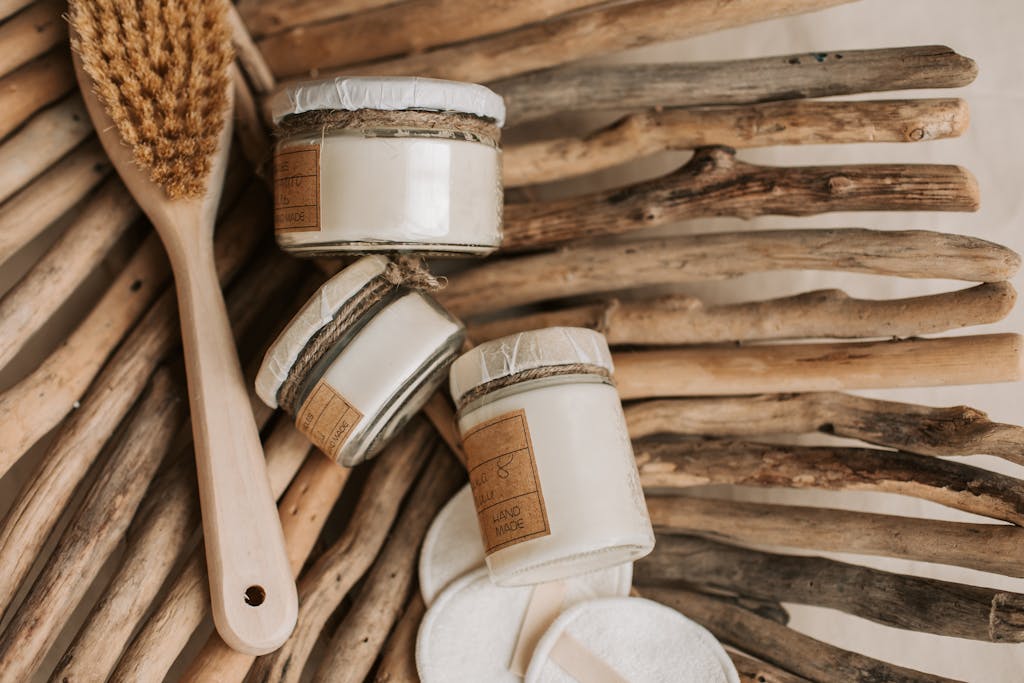
87 Natural Ingredients for Skincare
As we embark on this exploration of nature’s most potent offerings, prepare to be amazed by the sheer diversity and power of these 87 natural ingredients. Each one has been carefully selected for its unique properties and potential to transform your skincare and wellness routines. From exotic botanicals to common kitchen staples, this list spans the globe, bringing together centuries of traditional wisdom and cutting-edge scientific research.
Whether you’re looking to boost your fertility, enhance your skin’s radiance, or improve your overall well-being, you’ll find ingredients here that speak to your specific needs. As we delve into each ingredient, you’ll discover its origins, key benefits, and practical ways to incorporate it into your daily life.
Remember, the journey to natural beauty and wellness is deeply personal, and this list is your treasure map to finding the perfect combinations for your unique body and lifestyle. Let’s begin our adventure through nature’s apothecary!
- Aloe vera: This succulent plant produces a gel-like substance renowned for its soothing and healing properties. Aloe vera is widely used in skincare for its ability to calm irritated skin, reduce inflammation, and promote wound healing. It’s particularly effective for treating sunburns, minor cuts, and skin conditions like eczema. Rich in vitamins, minerals, and antioxidants, aloe vera also acts as a natural moisturiser, helping to hydrate the skin without leaving a greasy residue. Its antibacterial properties make it useful in treating acne, while its cooling effect provides relief for various skin discomforts.
- Lavender: Lavender is a versatile essential oil extracted from the flowers of the lavender plant. Known for its calming and relaxing scent, it’s a staple in aromatherapy for reducing stress and promoting better sleep. In skincare, lavender oil has antiseptic and anti-inflammatory properties, making it useful for treating minor skin irritations, burns, and insect bites. It can help balance oil production in the skin, potentially benefiting those with acne-prone skin. Lavender is also used in natural cleaning products for its pleasant scent and antibacterial properties. Its gentle nature
makes it suitable for a wide range of applications, from personal care to home use.
- Coconut oil: Extracted from the meat of mature coconuts, this versatile oil has numerous applications in both beauty and culinary realms. In skincare, coconut oil is an excellent moisturiser, capable of penetrating deep into the skin to provide hydration and reduce inflammation. Its antimicrobial properties make it useful for treating minor skin infections and acne. For hair care, it can help reduce protein loss and act as a natural conditioner. In cooking, coconut oil is a popular alternative to other oils, especially in vegan and paleo diets. It’s also used as a natural lubricant and in oil pulling for oral health.
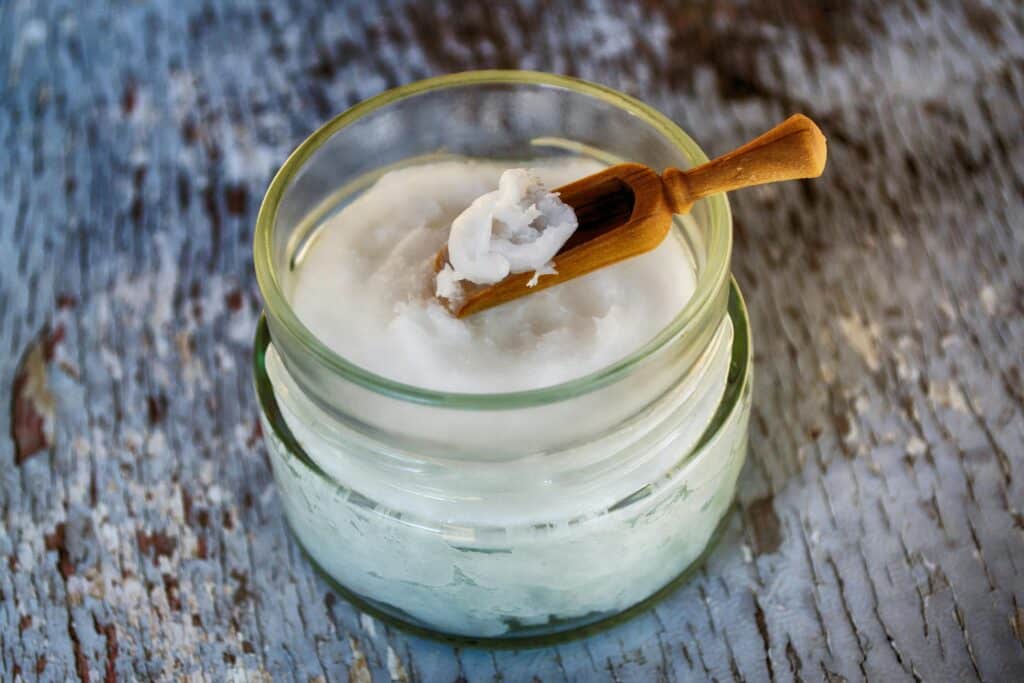
- Tea tree oil: Derived from the leaves of the Australian tea tree, this essential oil is renowned for its powerful antimicrobial and antifungal properties. It’s particularly effective in treating acne, athlete’s foot, and other skin infections. Tea tree oil can help soothe skin inflammation, reduce dandruff, and combat nail fungus. Its strong antiseptic qualities make it a popular ingredient in natural cleaning products. However, it’s potent and should be used with caution, often diluted with a carrier oil for topical use. Tea tree oil is also used in aromatherapy for its fresh, camphoraceous scent that can help clear the mind and airways.
- Shea butter: Extracted from the nuts of the African shea tree, this rich, creamy substance is a powerhouse of moisturising benefits. Shea butter is packed with vitamins and fatty acids that nourish and protect the skin. It’s particularly effective for dry or ageing skin, helping to improve elasticity and reduce the appearance of fine lines. In hair care, it can help reduce frizz and add shine. Shea butter’s anti-inflammatory properties make it useful for soothing skin conditions like eczema and dermatitis. Its natural SPF (though low) provides some protection against UV rays. Unrefined shea butter retains more of its beneficial compounds and is often preferred in natural skincare products.
- Eucalyptus: Eucalyptus is an essential oil derived from the leaves of the eucalyptus tree, known for its distinctive, fresh scent and powerful medicinal properties. Its primary use is as a decongestant, making it effective in treating respiratory issues like colds, sinusitis, and bronchitis. When used in aromatherapy or steam inhalation, it can help clear airways and ease breathing difficulties. Eucalyptus also has antiseptic and anti-inflammatory properties, making it useful in treating minor wounds and muscle pain. In skincare, it can help soothe irritated skin and combat acne due to its antibacterial nature. Its invigorating scent is often used in products designed to boost energy and mental clarity.
- Chamomile: Chamomile is a gentle yet powerful herb known for its calming and soothing properties. It’s most commonly consumed as a tea to promote relaxation and improve sleep quality. In skincare, chamomile has anti-inflammatory and antioxidant properties that make it beneficial for sensitive or irritated skin. It can help reduce redness, soothe eczema and other skin conditions, and promote healing. Chamomile is also used to lighten hair naturally and soothe scalp irritations. Its mild nature makes it suitable for use on children and those with sensitive skin. In aromatherapy, chamomile essential oil is used to reduce stress and promote a sense of well-being.
- Peppermint: Peppermint is a versatile herb known for its refreshing scent and cooling properties. As an essential oil or tea, it’s commonly used to aid digestion, relieve nausea, and ease headaches. In skincare, peppermint oil can provide a cooling sensation that helps soothe irritated skin and relieve itching. Its antimicrobial properties make it useful in treating acne and controlling excess oil production. Peppermint is also invigorating and can help improve mental focus when used in aromatherapy. In hair care, it can stimulate the scalp, potentially promoting hair growth, and its cooling effect can help relieve dandruff and scalp irritation. However, it should be used in moderation as it can be irritating in high concentrations.
- Rosemary: Rosemary is an aromatic herb with a wide range of uses in both culinary and medicinal applications. In hair care, rosemary is known for its ability to stimulate hair growth and improve scalp health. It can help increase circulation to the scalp, potentially slowing hair loss and promoting thicker hair. As an essential oil, rosemary is used in aromatherapy to improve memory and concentration. It has analgesic properties, making it useful for relieving muscle pain and headaches. In skincare, rosemary’s antioxidant and anti-inflammatory properties can help protect against skin damage and reduce puffiness. Its antimicrobial qualities also make it beneficial for acne-prone skin.
- Honey: A natural sweetener produced by bees, honey is much more than just a food. It’s a powerful antimicrobial agent, making it effective in wound healing and treating minor burns. In skincare, honey is a natural humectant, meaning it helps skin retain moisture. Its enzymes and nutrients can help clarify and brighten the complexion, making it useful in face masks and cleansers. Honey’s antibacterial properties make it beneficial for acne-prone skin. When consumed, it can help soothe sore throats and coughs. Manuka honey, in particular, is known for its strong antibacterial properties. Honey is also used in hair treatments to add shine and moisture to dry or damaged hair.
- Turmeric: Turmeric is a bright yellow spice derived from the root of the Curcuma longa plant. Its active compound, curcumin, is known for its powerful anti-inflammatory and antioxidant properties. In traditional medicine, turmeric has been used to treat a wide range of conditions, from digestive issues to skin problems. In skincare, it can help brighten the complexion, reduce inflammation, and potentially slow the signs of ageing. Turmeric is also used in face masks to treat acne and reduce hyperpigmentation. When consumed, it may help reduce inflammation throughout the body, potentially benefiting conditions like arthritis. However, it can stain skin and fabrics, so care should be taken when using it topically
- Ginger: Ginger is a pungent root with a long history of use in both culinary and medicinal applications. It’s renowned for its ability to aid digestion, reduce nausea, and alleviate motion sickness. Ginger has potent anti-inflammatory properties, making it useful in treating muscle pain and arthritis. In skincare, ginger can improve circulation, potentially promoting a more radiant complexion. Its antioxidant content may help protect the skin from free radical damage and signs of ageing. Ginger is also used in aromatherapy for its warming and energising properties. When consumed as a tea or added to foods, it can help boost the immune system and provide relief from cold and flu symptoms.
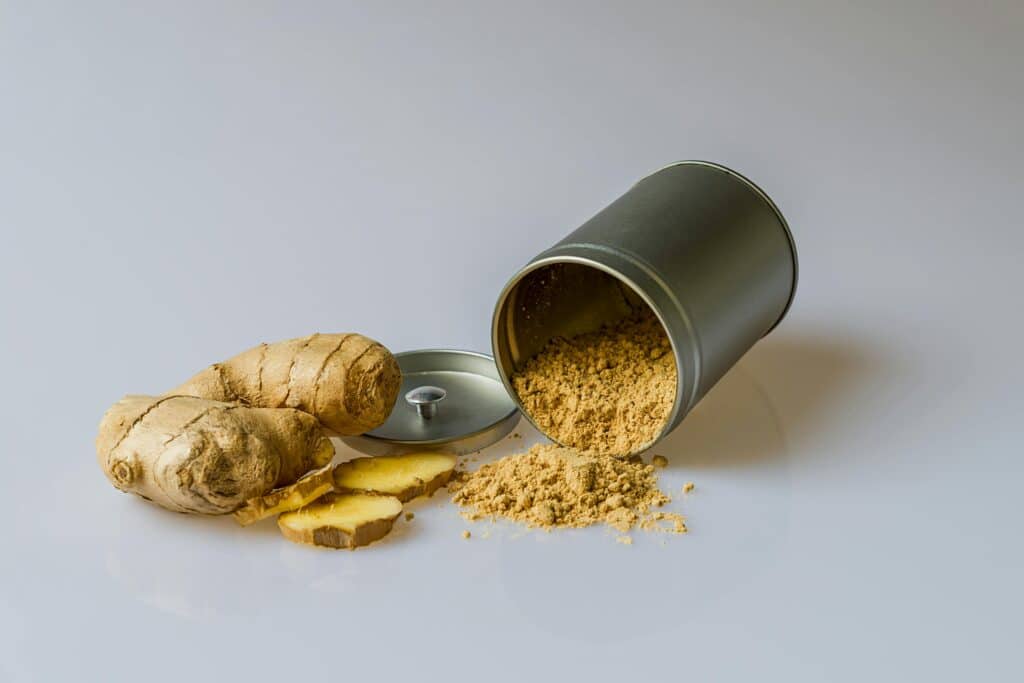
- Lemon: Lemon is a citrus fruit known for its bright, fresh scent and numerous health benefits. Rich in vitamin C, it’s a powerful antioxidant that can help boost the immune system and protect against free radical damage. In skincare, lemon juice or essential oil can help brighten the complexion, reduce hyperpigmentation, and control excess oil production. However, it should be used with caution as it can increase skin sensitivity to sunlight. Lemon is also a natural cleaner and deodoriser, making it useful in eco-friendly household cleaning products. Its scent is invigorating and can help improve mood and mental clarity when used in aromatherapy.
- Apple cider vinegar: Apple cider vinegar (ACV) is a fermented liquid made from crushed apples. It’s known for its numerous health benefits when consumed, including potentially aiding weight loss, reducing blood sugar levels, and improving digestion. In skincare, ACV can help balance the skin’s pH, potentially reducing acne and improving overall skin health. It’s often used as a toner to help cleanse and tighten pores. ACV can also be used as a natural hair rinse to add shine and remove product buildup. In household use, it’s an effective natural cleaner and odour neutraliser. However, it should always be diluted before use, as its high acidity can be irritating to skin and surfaces.
- Baking soda: Baking soda, or sodium bicarbonate, is a versatile compound with numerous uses beyond baking. As a mild abrasive, it’s an effective yet gentle exfoliant for skin and scalp, helping to remove dead skin cells and unclog pores. Its alkaline nature can help neutralise odours, making it useful as a natural deodorant and household freshener. In cleaning, baking soda can scrub surfaces without scratching and help absorb odours in refrigerators or carpets. It can also be used to soothe insect bites and sunburns when mixed into a paste with water. In personal care, it’s sometimes used as a natural toothpaste or mouthwash due to its ability to neutralise acids and freshen breath.
- Oatmeal: Oatmeal is not just a nutritious breakfast food; it’s also a gentle, soothing ingredient in skincare. When finely ground into a powder (colloidal oatmeal), it can help relieve itching and irritation associated with various skin conditions like eczema, chickenpox, and sunburn. Oatmeal has anti-inflammatory properties and can help moisturise dry skin. It also acts as a gentle exfoliant, helping to remove dead skin cells without irritating sensitive skin. In bath products, oatmeal can help soothe and soften the skin. Its ability to absorb excess oil makes it useful in face masks for oily or acne-prone skin. Oatmeal can also be used in hair care to soothe an itchy scalp and add shine to hair.
- Witch hazel: Witch hazel is a natural astringent derived from the bark and leaves of the witch hazel shrub. It’s known for its ability to tighten pores, remove excess oil, and reduce inflammation, making it a popular ingredient in toners and aftershaves. Witch hazel can help soothe irritated skin, reduce the appearance of puffy eyes, and aid in the healing of minor skin injuries. Its tannins and oils have antiseptic properties, potentially helping to prevent infection and reduce acne. Witch hazel is also used to treat varicose veins and haemorrhoids due to its ability to constrict blood vessels. While generally safe for most skin types, it can be drying, so it’s often combined with moisturising ingredients in skincare products.
- Jojoba oil: Jojoba oil is actually a liquid wax extracted from the seeds of the jojoba plant. Its molecular structure is remarkably similar to human sebum, making it an excellent moisturiser that’s easily absorbed by the skin without leaving a greasy residue. This property also makes it beneficial for balancing oil production in both oily and dry skin types. Jojoba oil is rich in vitamins and minerals that nourish the skin and hair. It has anti-inflammatory properties, making it useful in treating skin conditions like eczema and psoriasis. In haircare, it can help moisturise the scalp, potentially reducing dandruff, and can add shine to hair. Its stability and long shelf life make it a popular ingredient in natural cosmetics.
- Argan oil: Often called “liquid gold,” argan oil is extracted from the kernels of the argan tree native to Morocco. It’s rich in vitamin E, fatty acids, and antioxidants, making it highly nourishing for both skin and hair. In skincare, argan oil can help moisturise dry skin, reduce inflammation, and potentially slow the signs of ageing. Its non-greasy nature makes it suitable for all skin types, including acne-prone skin. In haircare, argan oil can help tame frizz, add shine, and protect against heat damage. It’s also used to strengthen nails and soften cuticles. The oil’s high content of oleic and linoleic acids contributes to its ability to improve skin elasticity and promote a healthy skin barrier.
- Green tea: Green tea is renowned for its high concentration of polyphenols, particularly catechins, which are powerful antioxidants. When consumed as a beverage, green tea can boost metabolism, improve brain function, and potentially lower the risk of certain cancers. In skincare, green tea extract can help protect against sun damage, reduce inflammation, and fight signs of ageing due to its antioxidant properties. It may also help regulate sebum production, making it beneficial for acne-prone skin. Green tea’s caffeine content can help reduce puffiness and improve circulation when used topically. In hair care, it may help reduce hair loss and promote hair growth. Green tea is also used in natural deodorants due to its antibacterial properties.
- Calendula: Calendula, also known as marigolds, is a flower with powerful healing properties. Its petals contain high levels of flavonoids, which give the flower its bright orange colour and contribute to its anti-inflammatory and antioxidant effects. In skincare, calendula is known for its ability to soothe irritated skin, promote wound healing, and reduce inflammation. It’s particularly beneficial for sensitive or damaged skin, making it a common ingredient in products for eczema, diaper rash, and minor burns. Calendula can also help stimulate collagen production, potentially improving skin elasticity and reducing the appearance of fine lines. Its gentle nature makes it suitable for use on all skin types, including delicate baby skin.
- Neem: Neem is a tree native to India, known for its powerful medicinal properties. Every part of the tree, from its leaves to its seeds, has beneficial uses. In skincare, neem oil is prized for its strong antibacterial, antifungal, and anti-inflammatory properties. It’s particularly effective in treating acne, eczema, and psoriasis. Neem can help balance oil production, making it useful for both dry and oily skin types. In hair care, it’s used to treat dandruff, promote hair growth, and combat head lice. Neem is also a natural pesticide, making it useful in organic gardening. Its bitter taste and strong odour make it less palatable for internal use, but it’s sometimes used in traditional medicine to treat various ailments.
- Avocado: Avocado is not just a nutritious food; it’s also a powerhouse ingredient in natural skincare. Rich in healthy fats, vitamins (particularly vitamin E), and minerals, avocado can deeply nourish and moisturise the skin. The oil extracted from avocados is particularly beneficial for dry or mature skin, helping to improve elasticity and reduce the appearance of fine lines. Avocado’s high content of antioxidants can help protect the skin from environmental damage. When used in hair care, avocado can help moisturise dry hair and soothe an itchy scalp. The fruit’s creamy texture makes it an excellent base for natural face masks. Consuming avocados can also benefit skin health from the inside out due to their high nutrient content.
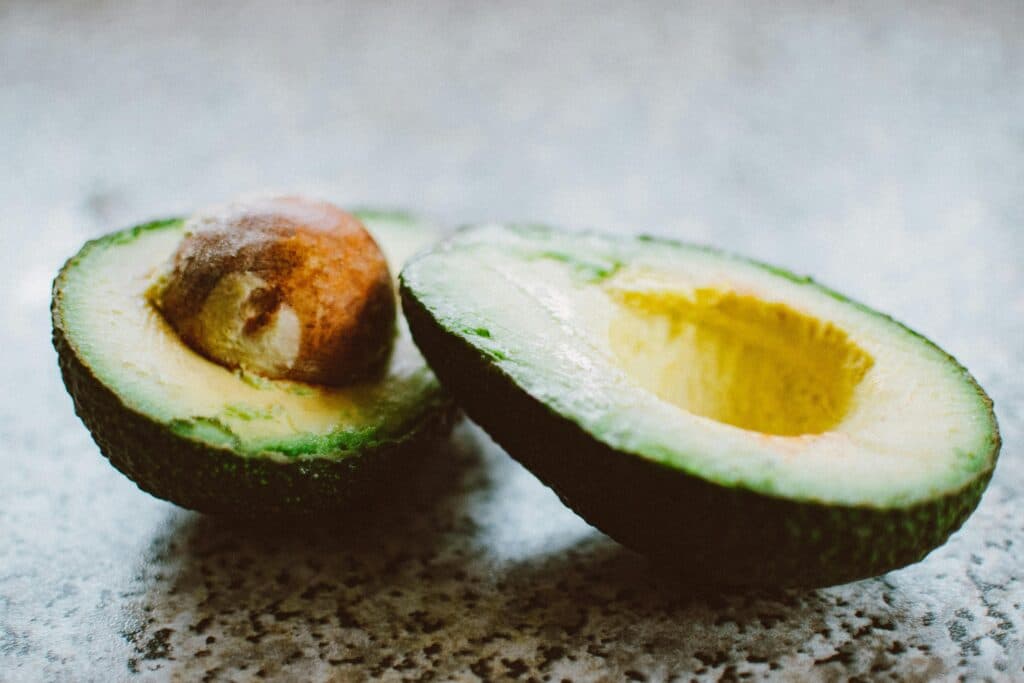
- Cocoa butter: Derived from cocoa beans, cocoa butter is a rich, creamy fat that’s solid at room temperature but melts at body temperature. This property makes it an excellent emollient in skincare products, providing a protective barrier that locks in moisture. Cocoa butter is particularly beneficial for dry, sensitive skin and is often used to help prevent stretch marks during pregnancy. Rich in antioxidants, it may help fight free radical damage and signs of ageing. Its luxurious texture and subtle chocolate scent make it a popular ingredient in body butters and lip balms. In hair care, cocoa butter can help moisturise dry hair and add shine. It’s also used in some natural sunscreens due to its ability to protect against UV radiation, although its SPF is relatively low.
- Frankincense: Frankincense is an aromatic resin derived from Boswellia trees, prized for centuries for its medicinal and spiritual properties. In skincare, frankincense essential oil is known for its ability to reduce the appearance of scars and fine lines, potentially slowing the signs of ageing. It has astringent properties that can help tone and tighten skin, making it beneficial for mature or sagging skin. Frankincense also has anti-inflammatory properties, making it useful in treating acne and other skin irritations. In aromatherapy, it’s valued for its calming and grounding effects, often used to reduce stress and anxiety. The oil can also help improve circulation and reduce inflammation when used in massage. Its earthy, slightly spicy scent makes it a popular ingredient in perfumes and incense.
- Rosehip oil: Extracted from the seeds of rose bushes, rosehip oil is rich in vitamins A and C, as well as essential fatty acids. This makes it a potent ingredient for skin regeneration and anti-ageing. It’s particularly effective in reducing the appearance of scars, fine lines, and hyperpigmentation. Rosehip oil can help improve skin elasticity and promote collagen production. Its lightweight texture allows for easy absorption, making it suitable for all skin types, including oily and acne-prone skin. It’s also used to treat dry, itchy skin conditions like eczema. In hair care, rosehip oil can add shine and moisture to dry, brittle hair.
- Bentonite clay: This highly absorbent clay is formed from aged volcanic ash. When mixed with water or apple cider vinegar, it creates a paste that can draw out impurities from the skin. Bentonite clay is known for its detoxifying properties, making it popular in face masks and body wraps. It can help clear acne, reduce oil production, and minimise the appearance of pores. When ingested (with caution and under guidance), it may help with digestive issues by binding to toxins in the gut. Bentonite clay is also used in natural deodorants and toothpastes for its ability to absorb odours and toxins.
- Activated charcoal: Activated charcoal is a fine black powder made from carbon-rich materials like wood or coconut shells. Its highly porous structure allows it to absorb toxins and impurities, making it a popular ingredient in skincare and health products. In skincare, it’s used in face masks and cleansers to deep clean pores and remove excess oil. Activated charcoal can help treat acne and balance oily skin. It’s also used in teeth whitening products due to its ability to absorb surface stains. In health applications, it’s sometimes used to treat poisoning or drug overdoses in emergency settings. However, it should only be ingested under medical supervision.
- Manuka honey: Produced by bees that pollinate the Manuka bush in New Zealand, this honey is renowned for its potent antibacterial properties. It contains high levels of methylglyoxal, which contributes to its unique healing abilities. Manuka honey is used in wound care to promote healing and prevent infection. In skincare, it can help treat acne, eczema, and other skin conditions due to its antibacterial and anti-inflammatory properties. It’s also a powerful humectant, helping to keep skin hydrated. When consumed, Manuka honey may help boost the immune system and improve digestive health. Its potency is measured by a Unique Manuka Factor (UMF) rating.
- Arnica: Arnica is a flowering plant known for its anti-inflammatory and pain-relieving properties. It’s commonly used in homoeopathic medicine and topical treatments for bruises, sprains, and muscle aches. Arnica contains helenalin, a compound that reduces swelling and discolouration associated with bruises. In skincare, it can help soothe irritated skin and reduce puffiness. Arnica is often found in eye creams to help diminish dark circles and in after-sun products to soothe sunburn. However, it should not be applied to broken skin or taken internally without professional guidance, as it can be toxic if ingested in large amounts.
- Cucumber: Cucumbers are not just for salads; they’re a versatile ingredient in skincare. With high water content and vitamin C, cucumbers have a cooling and hydrating effect on the skin. They’re particularly effective in reducing puffiness and soothing irritated skin. Cucumber extract is often used in eye creams to combat dark circles and reduce under-eye bags. The silica in cucumbers can help improve skin elasticity and promote a healthy complexion. In DIY skincare, cucumber slices are a popular remedy for tired eyes. The mild astringent properties of cucumbers make them useful for toning oily skin and tightening pores.
- Almond oil: Extracted from sweet almonds, this oil is rich in vitamin E, fatty acids, and proteins. It’s a versatile ingredient in both skincare and haircare. Almond oil is easily absorbed by the skin, making it an excellent moisturiser for all skin types. It can help reduce the appearance of fine lines and scars, and its anti-inflammatory properties make it useful for treating skin conditions like eczema and psoriasis. In hair care, almond oil can help strengthen hair, reduce breakage, and add shine. It’s also used in massage therapy due to its emollient properties and mild, pleasant scent.
- Nettle: Often considered a pesky weed, nettle is actually a nutrient-rich herb with numerous health benefits. It’s high in vitamins A, C, and K, as well as minerals like iron and silica. In herbal medicine, nettle is used to treat allergies, reduce inflammation, and support urinary health. For hair care, nettle is known to stimulate hair growth, reduce dandruff, and add shine to hair. Its anti-inflammatory properties make it useful in treating skin conditions like eczema. Nettle tea is a popular way to consume its benefits, while nettle extract is often found in natural shampoos and skin care products.
- Sage: Sage is an aromatic herb with potent antimicrobial and antioxidant properties. In skincare, it can help combat acne and reduce oiliness due to its astringent nature. Sage essential oil is used in aromatherapy to improve mental clarity and reduce stress. The herb is also known for its ability to reduce excessive sweating, making it a common ingredient in natural deodorants. In hair care, sage can help darken grey hair and promote hair growth. When consumed as a tea or used in cooking, sage may help improve digestion and boost cognitive function.
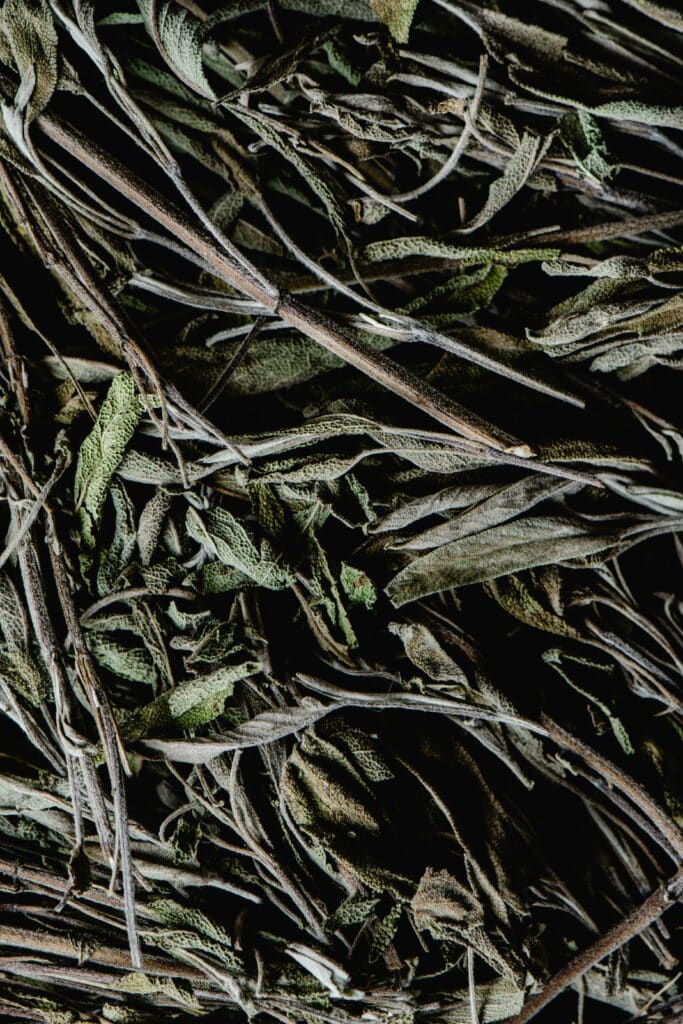
- Ylang-ylang: Derived from the flowers of the Cananga tree, ylang-ylang essential oil is known for its sweet, floral scent and calming properties. In aromatherapy, it’s used to reduce stress, anxiety, and high blood pressure. Ylang-ylang can help balance sebum production in the skin, making it beneficial for both dry and oily skin types. Its antimicrobial properties make it useful in treating acne and other skin infections. In hair care, ylang-ylang can help stimulate hair growth and add shine. The oil is also a popular ingredient in natural perfumes due to its rich, exotic fragrance.
- Grapeseed oil: Extracted from the seeds of grapes, this light oil is rich in linoleic acid and vitamin E. Its astringent properties make it excellent for oily or acne-prone skin, as it can help tighten pores and regulate sebum production. Grapeseed oil is easily absorbed and doesn’t leave a greasy residue, making it a popular carrier oil for essential oils. Its antioxidant content helps protect the skin from free radical damage and premature ageing. In hair care, grapeseed oil can help moisturise the scalp and add shine to hair without weighing it down. It’s also used in cooking as a heart-healthy alternative to other oils.
- Seaweed: Rich in minerals, vitamins, and amino acids, seaweed is a powerhouse ingredient in skincare and nutrition. Different types of seaweed, such as kelp, spirulina, and Irish moss, offer various benefits. In skincare, seaweed can help hydrate the skin, reduce inflammation, and promote collagen production. Its high iodine content makes it useful in treating acne and detoxifying the skin. Seaweed baths and wraps are popular spa treatments for their ability to improve circulation and reduce the appearance of cellulite. When consumed, seaweed provides essential minerals and can support thyroid function and overall health.
- Castor oil: Derived from castor beans, this thick, viscous oil is known for its unique composition of fatty acids, particularly ricinoleic acid. In skincare, castor oil is deeply moisturising and can help reduce inflammation, making it useful for treating dry skin conditions and minor wounds. It’s often used to promote hair growth, strengthen nails, and condition eyelashes and eyebrows. Castor oil’s antimicrobial properties make it effective in treating fungal infections like athlete’s foot. In traditional medicine, it’s used as a natural laxative, though this should only be done under professional guidance due to potential side effects.
- Papaya: Papaya is not just a delicious fruit; it’s also a potent skincare ingredient. It contains an enzyme called papain, which has exfoliating properties that can help remove dead skin cells and unclog pores. Papaya is rich in vitamins A and C, which can help brighten the skin and promote collagen production. The fruit’s enzymes can also help reduce inflammation and soothe sunburned skin. In hair care, papaya can help control dandruff and add shine to hair. When consumed, papaya aids digestion and provides a boost of antioxidants and fibre to support overall health.
- Liquorice root: Licorice root is a herb known for its sweet flavour and numerous medicinal properties. In skincare, it’s prized for its ability to brighten the skin and reduce hyperpigmentation due to its content of glabridin, which inhibits melanin production. Licorice root has anti-inflammatory properties, making it useful in treating skin conditions like eczema and rosacea. It can also help soothe irritated skin and reduce redness. In traditional medicine, liquorice root is used to treat digestive issues and respiratory problems. However, it should be used with caution as excessive consumption can lead to side effects.
- Evening primrose oil: Extracted from the seeds of the evening primrose plant, this oil is rich in gamma-linolenic acid (GLA), an omega-6 fatty acid. It’s particularly beneficial for hormonal balance and is often used to alleviate symptoms of PMS and menopause. In skincare, evening primrose oil can help improve skin elasticity, reduce inflammation, and balance moisture levels. It’s especially useful for treating dry, itchy skin conditions like eczema. When taken as a supplement, it may help improve overall skin health and reduce acne. Evening primrose oil is also used to support heart health and reduce joint pain associated with rheumatoid arthritis.
- Comfrey: Comfrey is an herb that has been used for centuries to promote healing. It contains allantoin, a compound that stimulates cell growth and repair. In skincare, comfrey is used to soothe irritated skin, heal minor wounds, and reduce inflammation. It’s particularly effective in treating bruises, sprains, and minor fractures, earning it the nickname “knitbone.” Comfrey can also help moisturise dry skin and reduce the appearance of scars. However, it should only be used externally, as internal use can cause liver damage. In hair care, comfrey can help strengthen hair and promote growth.
- Marshmallow root: Despite its name, marshmallow root has nothing to do with the sweet treat. This herb is known for its mucilage content, which forms a gel-like substance when mixed with water. This property makes it an excellent soothing agent for irritated skin and mucous membranes. In skincare, marshmallow root can help hydrate dry skin, reduce inflammation, and promote healing of minor wounds. It’s often used in products for sensitive or easily irritated skin. When consumed as a tea, marshmallow root can help soothe sore throats and digestive issues. Its gentle nature makes it suitable for use on all skin types, including delicate baby skin.
- Beeswax: Produced by honeybees, beeswax is a natural wax with numerous applications in skincare and beyond. It’s commonly used in lip balms and moisturisers for its ability to create a protective barrier on the skin, locking in moisture. Beeswax has anti-inflammatory and antibacterial properties, making it useful in treating minor wounds and skin irritations. It’s also used in natural cosmetics as an emulsifier and to give products a smooth, creamy texture. In hair care, beeswax can help tame frizz and add hold to styling products. Its water-repellent properties make it a popular ingredient in natural waterproofing formulas.
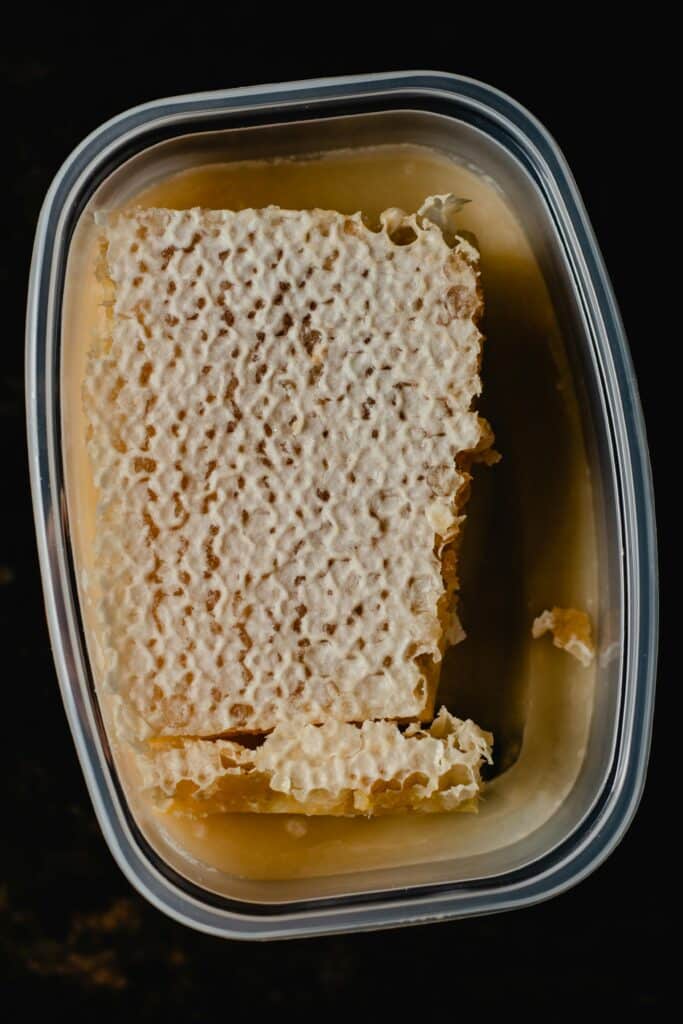
- Dragon’s blood: Despite its intimidating name, dragon’s blood is actually a red resin obtained from various plants, particularly the Croton lechleri tree. It has been used for centuries in traditional medicine for its powerful healing properties. Dragon’s blood is known for its ability to accelerate wound healing and reduce inflammation. In skincare, it’s used to treat acne, eczema, and other skin conditions. Its antioxidant properties can help protect the skin from environmental damage and signs of ageing. Dragon’s blood is also used in some cultures for spiritual purposes and as a natural dye.
- Chia seeds: These tiny seeds pack a powerful nutritional punch. Rich in omega-3 fatty acids, fibre, and antioxidants, chia seeds are often consumed for their health benefits. In skincare, chia seed oil can help hydrate the skin, reduce inflammation, and protect against free radical damage. The seeds can also be used as a gentle exfoliant when ground. Chia gel, made by soaking the seeds in water, can be used as a base for homemade face masks or as a hair gel. When consumed, chia seeds can support digestive health, promote satiety, and provide a boost of essential nutrients.
- Moringa: Often called the “miracle tree,” moringa is a nutrient-dense plant native to parts of Africa and Asia. Its leaves, seeds, and oil are all used for various purposes. In skincare, moringa oil is rich in antioxidants and can help protect the skin from environmental damage. It’s also known for its purifying properties, making it useful in cleansers and face masks. Moringa powder, made from dried leaves, is often used in supplements for its high nutrient content. The plant is also used in some water purification systems due to its ability to remove contaminants.
- Black seed oil: Also known as black cumin seed oil, this ingredient is derived from the seeds of the Nigella sativa plant. It’s rich in thymoquinone, a compound with powerful anti-inflammatory and antioxidant properties. In skincare, black seed oil can help reduce acne, soothe psoriasis and eczema, and moisturise dry skin. It’s also used in hair care to promote hair growth and reduce dandruff. When consumed, black seed oil is believed to boost the immune system and support respiratory health. Its strong, slightly bitter taste makes it more commonly used in supplements rather than cooking.
- Dandelion: Often considered a pesky weed, dandelion is actually a versatile herb with numerous health benefits. Its leaves are rich in vitamins and minerals, while its roots have detoxifying properties. In skincare, dandelion extract can help purify the skin, reduce inflammation, and promote a healthy complexion. The plant’s diuretic properties make it useful in reducing water retention and bloating when consumed as a tea. Dandelion root is also used as a coffee substitute and is believed to support liver health. The flowers can be used to make natural dyes and in some skincare formulations for their antioxidant properties.
- Tamanu oil: Extracted from the nuts of the Tamanu tree, this oil is known for its remarkable healing properties. It’s particularly effective in promoting skin regeneration and reducing the appearance of scars, stretch marks, and minor wounds. Tamanu oil has anti-inflammatory and antimicrobial properties, making it useful in treating acne, eczema, and psoriasis. It’s also used to soothe sunburns and protect the skin from UV damage. Despite its deep green colour, tamanu oil absorbs quickly into the skin without leaving a greasy residue. It’s sometimes used in hair care to promote scalp health and add shine to hair.
- White willow bark: White willow bark is nature’s aspirin, containing salicin, which the body converts to salicylic acid. This makes it a natural alternative to synthetic salicylic acid in skincare. It’s particularly effective in treating acne due to its ability to exfoliate the skin and unclog pores. White willow bark also has anti-inflammatory properties, making it useful in soothing irritated skin and reducing redness. In traditional medicine, it’s used to relieve pain and reduce fever. When used in hair care, it can help exfoliate the scalp and promote healthier hair growth.
- Bamboo: Bamboo is not just for pandas; it’s a versatile ingredient in beauty and health products. Rich in silica, bamboo extract can help strengthen hair, nails, and bones. In skincare, it’s used for its antioxidant properties and ability to improve skin elasticity. Bamboo charcoal is popular in cleansing products for its ability to absorb impurities. The plant’s sustainability and rapid growth make it an eco-friendly choice for various products. Bamboo fibre is also used in clothing and textiles for its soft texture and moisture-wicking properties.
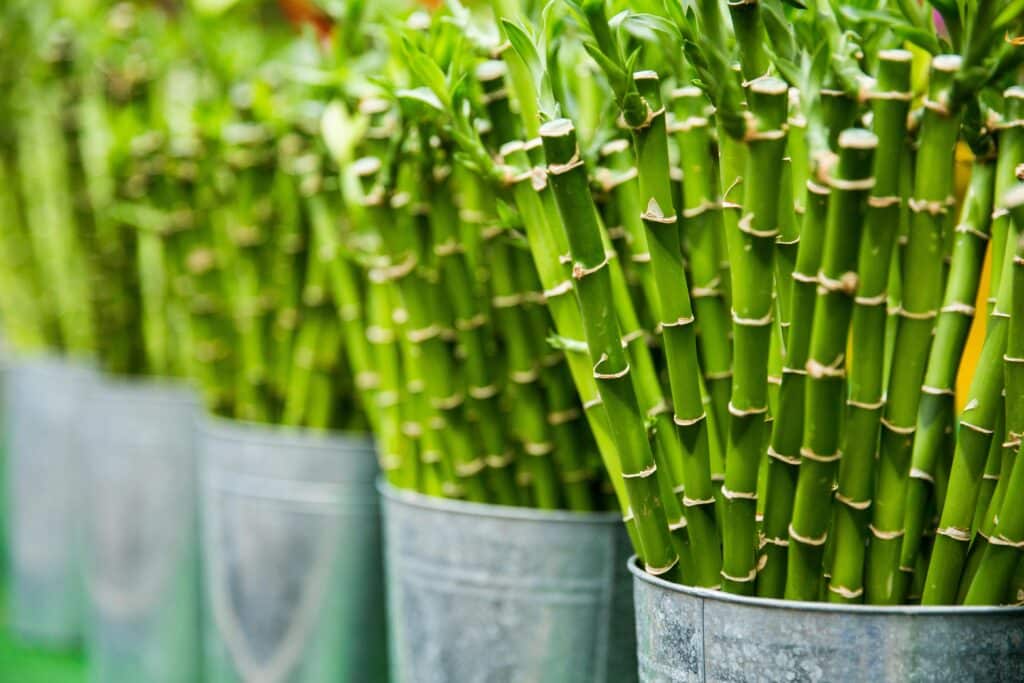
- Pomegranate seed oil: Extracted from the seeds of pomegranates, this oil is rich in punicic acid, a type of omega-5 fatty acid with potent antioxidant properties. In skincare, pomegranate seed oil can help protect against sun damage, reduce inflammation, and promote collagen production. It’s particularly beneficial for mature or damaged skin, helping to improve elasticity and reduce the appearance of fine lines. The oil can also help balance moisture levels in the skin without clogging pores, making it suitable for all skin types. In hair care, pomegranate seed oil can help strengthen hair follicles and add shine. Its high antioxidant content also makes it a popular ingredient in anti-ageing products.
- Maca: Maca is a root vegetable native to Peru, known for its adaptogenic properties. It’s often consumed as a powder or supplement to boost energy, enhance mood, and balance hormones. In skincare, maca extract is valued for its high nutrient content, including vitamins B, C, and E. These nutrients can help nourish the skin, improve skin tone, and protect against environmental stressors. Maca is also believed to stimulate collagen production, potentially reducing the signs of ageing. Some people use maca in hair care to promote hair growth and improve overall scalp health. Its energising properties make it a popular ingredient in natural cosmetics designed to give the skin a healthy glow.
- Hibiscus: Often called the “botox plant,” hibiscus is a flowering plant with powerful anti-ageing properties. Rich in alpha-hydroxy acids (AHAs) and antioxidants, hibiscus extract can help exfoliate the skin, promote cell turnover, and protect against free radical damage. It’s particularly effective in improving skin elasticity and reducing the appearance of fine lines and wrinkles. Hibiscus also has a slight astringent effect, which can help tone and firm the skin. In hair care, hibiscus is used to promote hair growth, prevent premature greying, and add shine to hair. When consumed as a tea, hibiscus can support heart health and aid in digestion. Its vibrant red colour also makes it a natural choice for adding colour to various beauty products.
- Ashwagandha: An adaptogenic herb used in Ayurvedic medicine, ashwagandha is known for its stress-reducing properties. It helps the body resist physical and mental stress, potentially lowering cortisol levels. In skincare, ashwagandha’s antioxidant properties can protect against premature ageing and environmental damage. It may also help reduce inflammation and improve skin tone. When consumed as a supplement, ashwagandha is believed to boost energy, improve cognitive function, and support immune health. Some studies suggest it may help improve sleep quality and reduce anxiety. Its root is often used in teas, tinctures, and powders for various health benefits.
- Spirulina: A blue-green algae packed with nutrients, spirulina is considered a superfood. It’s rich in protein, vitamins, minerals, and antioxidants. In skincare, spirulina can help detoxify the skin, reduce inflammation, and combat signs of ageing. Its high chlorophyll content gives it purifying properties, making it useful in face masks and cleansers. When consumed, spirulina may boost immune function, improve gut health, and provide a natural energy boost. It’s often found in powdered form and can be added to smoothies or taken as a supplement. Some studies suggest spirulina may have anti-cancer properties and could help manage diabetes.
- Baobab: Derived from the African baobab tree, baobab fruit powder is exceptionally rich in vitamin C, fibre, and antioxidants. In skincare, it can help brighten the complexion, improve skin elasticity, and protect against free radical damage. Baobab oil, extracted from the seeds, is deeply moisturising and can help soothe dry, irritated skin. When consumed, baobab powder can support digestive health, boost immune function, and provide sustained energy due to its high fibre content. It’s often added to smoothies, yoghurt, or baked goods for a nutritional boost. Baobab is also used in some hair care products to add shine and strengthen hair.
- Noni: Noni is a fruit native to Southeast Asia, known for its potent antioxidant and anti-inflammatory properties. In skincare, noni extract can help improve skin texture, reduce the appearance of fine lines, and soothe irritated skin. It’s particularly beneficial for acne-prone skin due to its antibacterial properties. Noni juice, while not the most pleasant tasting, is consumed for its potential health benefits, including boosting immune function and reducing inflammation. Some studies suggest noni may have anti-cancer properties and could help manage pain and arthritis symptoms. It’s often found in supplements, juices, and skincare products.
- Kakadu plum: Native to Australia, the Kakadu plum is renowned for having the highest vitamin C content of any fruit. This makes it a powerhouse ingredient in skincare for brightening the complexion, boosting collagen production, and protecting against environmental damage. Its high antioxidant content also helps combat signs of ageing and reduce inflammation. When consumed, Kakadu plum can support immune health and aid in iron absorption due to its high vitamin C content. It’s often found in powdered form or as an extract in various skincare and health products. Some studies suggest it may have antimicrobial properties as well.
- Blue tansy: Blue tansy is an essential oil derived from the tansy flower, known for its vivid blue colour and sweet, herbaceous scent. In skincare, it’s prized for its anti-inflammatory and anti-histamine properties, making it effective for soothing irritated skin, reducing redness, and calming acne flare-ups. Blue tansy oil contains chamazulene, a compound that gives it its blue colour and contributes to its skin-soothing effects. In aromatherapy, blue tansy is used to promote relaxation and reduce anxiety. However, it should be used with caution as it can cause skin sensitivity in some people and should always be diluted before use.
- Propolis: Propolis is a resin-like substance produced by bees to build and repair their hives. It’s known for its powerful antibacterial, antifungal, and anti-inflammatory properties. In skincare, propolis can help fight acne, soothe skin irritations, and promote wound healing. Its antioxidant content also makes it useful in anti-ageing formulations. When consumed, propolis is believed to boost immune function and support oral health. It’s often found in natural toothpastes, mouthwashes, and throat sprays. Some studies suggest propolis may have anti-cancer properties and could help manage diabetes. It’s available in various forms, including tinctures, capsules, and topical products.
- Royal jelly: Royal jelly is a nutrient-rich substance produced by worker bees as food for the queen bee and larvae. It’s packed with proteins, vitamins, and minerals, making it a popular ingredient in both skincare and health supplements. In skincare, royal jelly can help moisturise the skin, stimulate collagen production, and promote wound healing. Its antioxidant properties also make it useful in anti-ageing products. When consumed, royal jelly is believed to boost energy, support immune function, and improve skin health from within. Some studies suggest it may have neuroprotective effects and could help manage menopausal symptoms. However, those with bee allergies should avoid royal jelly.
- Matcha: Matcha is a finely ground powder made from specially grown and processed green tea leaves. It’s known for its high antioxidant content, particularly catechins like EGCG. In skincare, matcha can help protect against UV damage, reduce inflammation, and promote a more even skin tone. Its caffeine content can also help reduce puffiness and improve circulation. When consumed, matcha provides a steady release of energy and may boost metabolism. It’s rich in L-theanine, an amino acid that can promote relaxation without drowsiness. Matcha is often used in beverages, baked goods, and various skincare products for its health benefits and vibrant green colour.
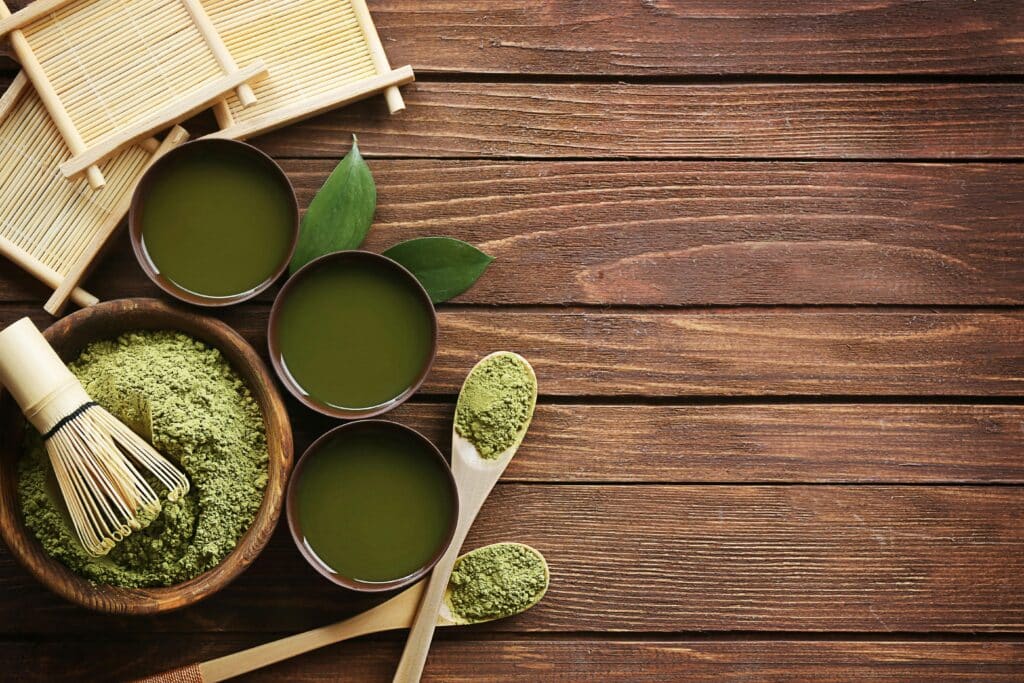
- Chlorella: Chlorella is a type of freshwater algae that’s packed with nutrients, including vitamins, minerals, antioxidants, and chlorophyll. In skincare, chlorella can help detoxify the skin, reduce inflammation, and promote collagen production. Its high chlorophyll content gives it potent antioxidant properties, helping to protect the skin from environmental damage. When consumed, chlorella is believed to support detoxification, boost immune function, and improve digestive health. It’s often taken as a supplement to help remove heavy metals from the body. Some studies suggest chlorella may help manage blood sugar levels and reduce cholesterol. It’s typically consumed in powder or tablet form.
- Horsetail: Horsetail is an herb rich in silica, a mineral that’s essential for healthy skin, hair, and nails. In skincare, horsetail extract can help improve skin elasticity, reduce the appearance of fine lines, and promote a more even skin tone. Its astringent properties make it useful in toners for oily or acne-prone skin. In hair care, horsetail is believed to strengthen hair, reduce breakage, and promote growth. When consumed as a tea or supplement, horsetail may help improve bone density, support urinary tract health, and reduce inflammation. However, it should be used with caution as it can interact with certain medications and may be harmful if consumed in large amounts.
- Gotu kola: Gotu kola is a herb used in traditional Ayurvedic and Chinese medicine. It’s known for its wound-healing and cognitive-enhancing properties. In skincare, gotu kola can help improve skin elasticity, reduce the appearance of scars and stretch marks, and promote collagen production. It’s particularly beneficial for improving circulation, which can help reduce cellulite and varicose veins. When consumed, gotu kola is believed to boost cognitive function, reduce anxiety, and improve memory. Some studies suggest it may have neuroprotective effects and could help manage venous insufficiency. It’s often found in creams, supplements, and teas.
- Helichrysum: Helichrysum is an essential oil derived from the Helichrysum italicum plant, also known as immortelle or everlasting. It’s prized for its powerful anti-inflammatory and antioxidant properties. In skincare, helichrysum can help reduce the appearance of scars, bruises, and age spots. It’s also beneficial for soothing irritated skin and promoting skin cell regeneration. Helichrysum is often used in aromatherapy to relieve stress, promote relaxation, and ease muscle pain. Some studies suggest it may have antimicrobial properties and could help manage respiratory issues. However, like all essential oils, it should be used with caution and properly diluted before application.
- Ginseng: Ginseng is a root that has been used in traditional medicine for centuries. It’s known for its adaptogenic properties, helping the body resist stress. In skincare, ginseng can help brighten the complexion, improve skin elasticity, and reduce the appearance of fine lines. Its ability to boost circulation can give the skin a healthy glow. When consumed, ginseng is believed to enhance energy, improve cognitive function, and support immune health. Some studies suggest it may help manage blood sugar levels and reduce inflammation. Ginseng is available in various forms, including teas, supplements, and skincare products.
- Cacao: Cacao, the raw form of chocolate, is rich in antioxidants, particularly flavonoids. In skincare, cacao can help protect against UV damage, improve skin hydration, and promote a more even skin tone. Its caffeine content can help reduce puffiness and improve circulation. Cacao butter, derived from cacao beans, is deeply moisturising and often used in body butters and lip balms. When consumed, raw cacao is believed to support heart health, improve mood, and provide a natural energy boost. It’s rich in minerals like magnesium and iron. Cacao is often used in raw desserts, smoothies, and various skincare products for its health benefits and delicious flavour.
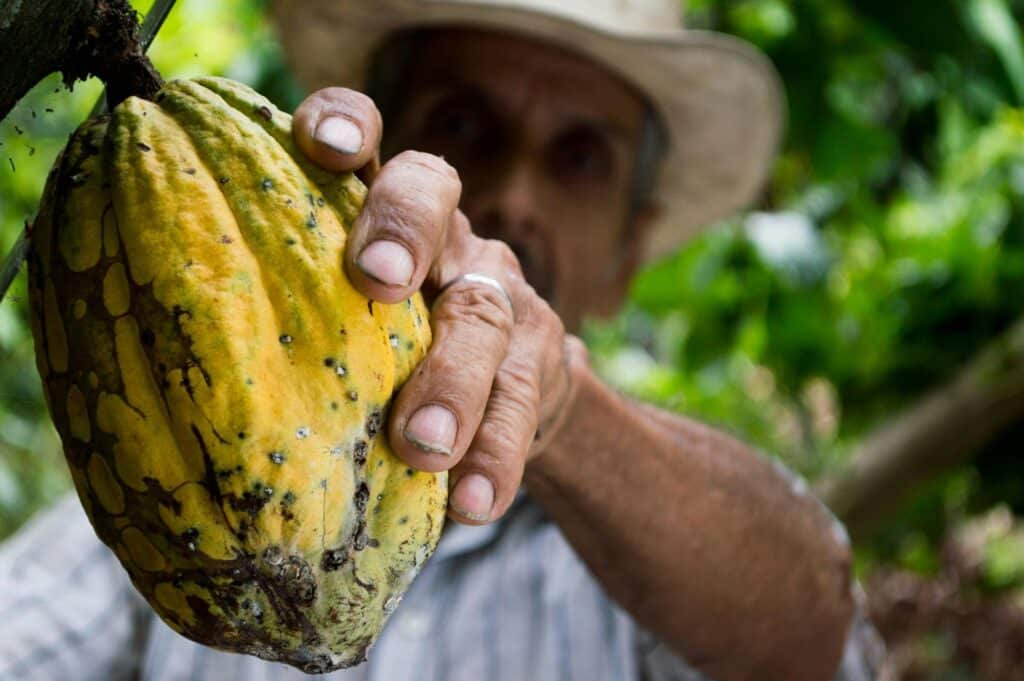
- Moringa seed oil: Extracted from the seeds of the moringa tree, this oil is rich in antioxidants and fatty acids. In skincare, moringa seed oil can help moisturise the skin, reduce inflammation, and protect against environmental damage. It’s particularly beneficial for dry or mature skin types. Moringa seed oil has antimicrobial properties, making it useful for treating acne and other skin infections. In hair care, it can help nourish the scalp and add shine to hair. When consumed, moringa seed oil is believed to support heart health and potentially have anti-inflammatory effects throughout the body. It’s often found in facial oils, moisturisers, and hair care products.
- Marula oil: Extracted from the kernels of the marula fruit, this oil is rich in antioxidants and fatty acids. In skincare, marula oil is deeply moisturising yet lightweight, making it suitable for all skin types. It can help improve skin elasticity, reduce the appearance of fine lines, and protect against environmental damage. Marula oil is also non-comedogenic, meaning it won’t clog pores. In hair care, it can help moisturise dry hair and add shine without weighing it down. Some studies suggest marula oil may have antimicrobial properties. It’s often found in facial oils, moisturisers, and hair care products.
- Grapefruit seed extract: Derived from the seeds and pulp of grapefruits, this extract is known for its powerful antimicrobial properties. In skincare, it can help fight acne-causing bacteria, reduce inflammation, and protect against environmental damage. Its astringent properties make it useful in toners for oily skin. Grapefruit seed extract is also used as a natural preservative in many organic skincare products. When consumed, it’s believed to support immune function and aid in detoxification. However, it can interact with certain medications, so it’s important to consult with a healthcare provider before using it as a supplement.
- Bromelain: Bromelain is an enzyme found in pineapple stems and juice. In skincare, it acts as a natural exfoliant, helping to remove dead skin cells and improve skin texture. It can also help reduce inflammation and promote wound healing, making it useful for treating acne and other skin conditions. When consumed, bromelain is believed to aid digestion, reduce inflammation throughout the body, and potentially help with sinus issues. It’s often used in digestive enzyme supplements and as a meat tenderiser. Some studies suggest bromelain may have anti-cancer properties and could help manage osteoarthritis symptoms.
- Reishi mushroom: Reishi is an adaptogenic mushroom that has been used in traditional Chinese medicine for centuries. In skincare, reishi extract can help soothe irritated skin, reduce inflammation, and protect against environmental damage. Its adaptogenic properties may help the skin better resist stress. When consumed, reishi is believed to support immune function, reduce stress, and promote better sleep. Some studies suggest it may have anti-cancer properties and could help manage blood sugar levels. Reishi is often found in supplements, teas, and various skincare products, particularly those aimed at reducing stress and promoting overall wellness.
- Chaga mushroom: Chaga is a fungus that grows primarily on birch trees in cold climates. It’s rich in antioxidants and has been used in folk medicine for centuries. In skincare, chaga extract can help protect against UV damage, reduce inflammation, and promote a more even skin tone. Its high melanin content may help protect the skin from sun damage. When consumed, chaga is believed to support immune function, reduce inflammation, and potentially have anti-cancer properties. It’s also high in fibre and may support digestive health. Chaga is often consumed as a tea or supplement and is increasingly being used in skincare products for its antioxidant benefits.
- Lion’s mane mushroom: Lion’s mane is a unique-looking mushroom known for its potential cognitive benefits. In skincare, lion’s mane extract can help reduce inflammation, promote collagen production, and potentially accelerate wound healing. Its antioxidant properties may help protect the skin from environmental damage. When consumed, lion’s mane is believed to support brain health, improve focus and memory, and potentially have neuroprotective effects. Some studies suggest it may help manage symptoms of anxiety and depression. Lion’s mane is often found in supplements, teas, and is increasingly being used in skincare products, particularly those aimed at promoting skin repair and overall wellness.
- Cordyceps: Cordyceps is a type of parasitic fungus that has been used in traditional Chinese medicine for centuries. In skincare, cordyceps extract can help improve skin hydration, reduce inflammation, and potentially slow signs of ageing. Its ability to improve cellular energy production may help promote skin cell turnover. When consumed, cordyceps is believed to boost energy and athletic performance, support respiratory health, and potentially have anti-ageing effects. Some studies suggest it may help manage blood sugar levels and support kidney health. Cordyceps is often found in supplements and is increasingly being used in skincare products, particularly those aimed at energising and revitalising the skin.
- Squalane: Squalane is a hydrogenated form of squalene, a compound naturally found in human sebum. While it can be derived from shark liver, plant-based sources like olives are more commonly used today. In skincare, squalane is an excellent moisturiser that mimics the skin’s natural oils. It’s lightweight, non-comedogenic, and suitable for all skin types. Squalane can help improve skin hydration, reduce the appearance of fine lines, and protect the skin barrier. It’s also used in hair care to add shine and tame frizz without weighing hair down. Squalane is often found in facial oils, moisturisers, and various anti-ageing products.
- Bakuchiol: Bakuchiol is a plant-based ingredient derived from the babchi plant. It’s often referred to as a natural alternative to retinol due to its similar effects on the skin. In skincare, bakuchiol can help improve skin texture, reduce the appearance of fine lines and wrinkles, and promote a more even skin tone. Unlike retinol, bakuchiol is generally well-tolerated by sensitive skin and doesn’t increase photosensitivity. It also has antioxidant and anti-inflammatory properties, making it beneficial for acne-prone skin. Bakuchiol is often found in serums, moisturisers, and various anti-ageing products, particularly those marketed as natural alternatives to retinol.
- Hemp seed oil: Derived from hemp seeds, this oil is rich in omega-3 and omega-6 fatty acids, as well as vitamin E. In skincare, hemp seed oil can help balance oil production, reduce inflammation, and improve skin hydration without clogging pores. It’s particularly beneficial for acne-prone and sensitive skin types. Hemp seed oil can also help strengthen the skin barrier, making it useful for conditions like eczema and psoriasis. When consumed, it may support heart health, reduce inflammation, and promote hormonal balance. Unlike CBD oil, hemp seed oil doesn’t contain significant amounts of cannabinoids. It’s often used in cooking, supplements, and various skincare products.
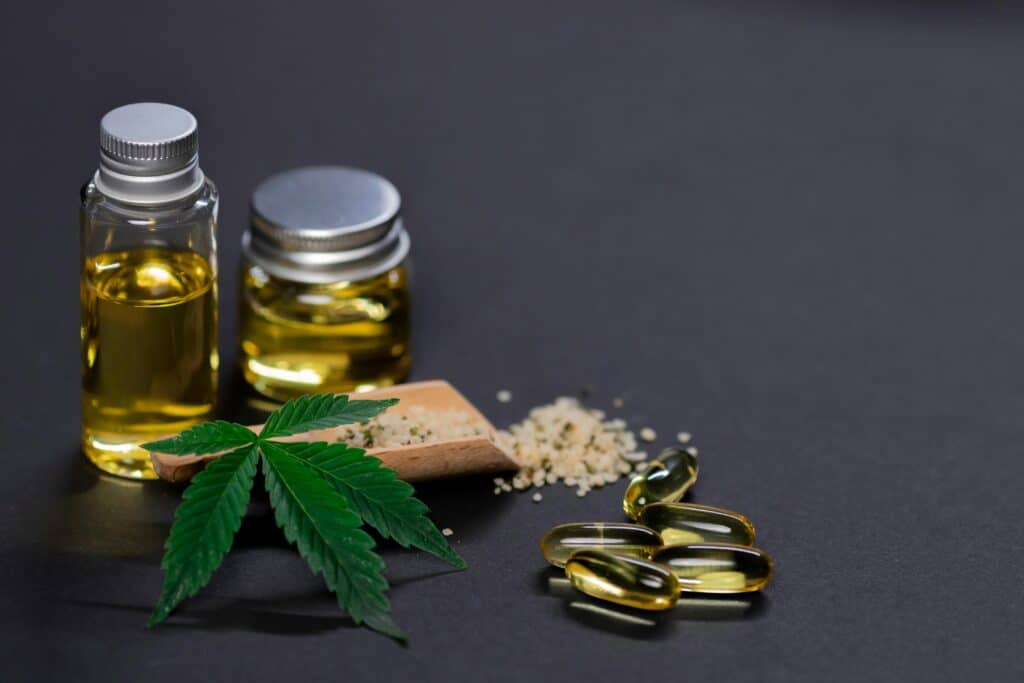
- Amla: Also known as Indian gooseberry, amla is a fruit rich in vitamin C and other antioxidants. In skincare, amla extract can help brighten the complexion, improve skin texture, and protect against environmental damage. Its high vitamin C content makes it particularly beneficial for promoting collagen production and reducing signs of ageing. In hair care, amla is believed to strengthen hair, reduce premature greying, and promote hair growth. When consumed, amla is thought to support immune function, aid digestion, and potentially have anti-inflammatory effects throughout the body. It’s a common ingredient in Ayurvedic medicine and is often found in supplements, hair oils, and various skincare products, particularly those aimed at brightening and anti-ageing.
- Bamboo charcoal: Bamboo charcoal is created by burning bamboo at high temperatures in the absence of oxygen. In skincare, it’s known for its ability to deeply cleanse and detoxify the skin. Bamboo charcoal can help absorb excess oil, unclog pores, and remove impurities from the skin. It’s particularly beneficial for oily and acne-prone skin types. In addition to skincare, bamboo charcoal is used in air and water purification systems due to its highly absorbent nature. It’s often found in cleansers, face masks, and various detoxifying skincare products. Bamboo charcoal is also used in some toothpastes for its whitening and purifying properties.
- Blue lotus: Blue lotus, also known as blue water lily, is a plant with a long history of use in traditional medicine and spiritual practices. In skincare, blue lotus extract can help soothe irritated skin, reduce inflammation, and potentially slow signs of ageing due to its antioxidant content. It’s particularly beneficial for sensitive and mature skin types. Blue lotus is also used in aromatherapy for its calming and mood-enhancing properties. When consumed as a tea, it’s believed to promote relaxation and potentially improve sleep quality. However, it should be used with caution as it can have mild psychoactive effects in high doses.
- Sea buckthorn: Sea buckthorn is a small shrub whose berries and seeds are rich in vitamins, minerals, and antioxidants. In skincare, sea buckthorn oil is prized for its nourishing and regenerative properties. It’s particularly high in vitamins C and E, as well as rare omega-7 fatty acids. This makes it excellent for promoting skin healing, reducing inflammation, and potentially slowing signs of ageing. Sea buckthorn can help improve skin elasticity, reduce the appearance of fine lines, and promote a more even skin tone. It’s also beneficial for treating dry or damaged skin conditions. When consumed, sea buckthorn is believed to support heart and digestive health. It’s often found in facial oils, moisturisers, and various anti-ageing products, as well as in supplements and health foods.
- Prickly pear seed oil: Derived from the seeds of the prickly pear cactus, this oil is rich in vitamin E, fatty acids, and antioxidants. In skincare, prickly pear seed oil is known for its excellent moisturising properties without leaving a greasy residue. It’s particularly beneficial for mature and dry skin types, helping to improve skin elasticity and reduce the appearance of fine lines. The high vitamin K content in this oil can help brighten under-eye circles and improve skin tone. Prickly pear seed oil also has anti-inflammatory properties, making it useful for soothing irritated skin. In hair care, it can help add shine and tame frizz. This oil is often found in luxury skincare products due to its potent benefits and the labour-intensive process required to extract it.
- Tremella fuciformis: Also known as snow mushroom or silver ear mushroom, Tremella fuciformis is a fungus that has been used in Traditional Chinese Medicine for centuries. In skincare, it’s gaining popularity for its impressive hydrating properties, often compared to hyaluronic acid. Tremella can hold up to 500 times its weight in water, helping to deeply hydrate the skin and improve its moisture retention. It also has antioxidant and anti-inflammatory properties, which can help protect the skin from environmental damage and reduce signs of ageing. Tremella is believed to support the production of collagen and may help improve skin elasticity. When consumed, it’s thought to have immune-boosting and anti-inflammatory effects. This ingredient is increasingly found in hydrating serums, moisturisers, and anti-ageing skincare products.
Incorporating Natural Ingredients into Your Routine
When introducing natural ingredients into your skincare or wellness routine, it’s essential to approach the process thoughtfully and systematically. Here are some key principles to keep in mind:
Start Slowly and Patch Test
- Always perform a patch test before applying a new product to your face or body.
- Apply a small amount of the product to the inside of your wrist or behind your ear.
- Wait 24-48 hours to check for any adverse reactions.
- If no reaction occurs, it’s likely safe to use the product more broadly.
Understand Your Skin Type and Needs
- Identify your skin type: oily, dry, combination, sensitive, or normal.
- Consider any specific skin concerns you want to address (e.g., acne, ageing, hyperpigmentation).
- Research which natural ingredients are most beneficial for your skin type and concerns.
Begin with Basic, Versatile Ingredients
- Start with well-known, multi-purpose ingredients such as:
- Aloe vera for soothing and hydration
- Jojoba oil for moisturising
- Tea tree oil for acne prone skin (always dilute before use)
- Rosehip oil for anti-ageing benefits
Introduce One New Ingredient at a Time
- Add new ingredients to your routine one at a time.
- Use the new product for at least 2-4 weeks before introducing another.
- This approach helps you identify which ingredients work best for your skin.
Consider the Form of the Ingredient
Natural ingredients come in various forms:
- Whole plant materials (e.g., oatmeal, cucumber slices)
- Oils and butters (e.g., coconut oil, shea butter)
- Essential oils (always dilute before use)
- Extracts and hydrosols
- Powders (e.g., clay masks)
Choose the form that best suits your needs and lifestyle.
Pay Attention to Quality and Sourcing
- Look for organic, cold-pressed, or unrefined options when possible.
- Research the brand’s sourcing practices and certifications.
- Be wary of products that claim to be “natural” but contain mostly synthetic ingredients.
Combine Ingredients Wisely
- Some natural ingredients work well together, while others may counteract each other.
- For example:
- Vitamin C and niacinamide can boost each other’s effectiveness
- Avoid mixing retinol with AHAs/BHAs as it may cause irritation
Adjust Your Routine Seasonally
- Your skin’s needs may change with the seasons.
- In winter, focus on hydrating ingredients like hyaluronic acid and oils.
- In summer, opt for lighter formulations and ingredients with sun-protective properties.
Listen to Your Body
- Pay attention to how your skin and body respond to new ingredients.
- If you experience persistent irritation or breakouts, discontinue use.
- Remember that what works for others may not work for you, and vice versa.
Consult with Professionals
- Consider consulting with a dermatologist or healthcare professional, especially if you have sensitive skin or existing health conditions.
- They can provide personalised advice and help you navigate potential interactions with medications or other treatments.
Be Patient and Consistent
- Natural ingredients often work more subtly than their synthetic counterparts.
- Give new products time to show results – typically 4-6 weeks for skincare.
- Consistency is key to seeing long-term benefits from natural ingredients.
By following these guidelines, you can safely and effectively incorporate natural ingredients into your skincare and wellness routines. Remember, the journey to finding your perfect natural routine is personal and may require some trial and error. Embrace the process and enjoy discovering the powerful benefits these natural ingredients have to offer.

Conclusion
As I reflect on my journey from focusing on fertility to embracing a holistic approach to health and skincare, I’m in awe of the profound impact these 87 natural ingredients have had on my life. What began as a targeted search for fertility-boosting elements blossomed into a comprehensive understanding of how nature can nurture our bodies inside and out.
The natural ingredients explored in this guide represent just a fraction of what nature has to offer for our skincare, wellness, and reproductive health needs. By harnessing these powerful elements, we can achieve a balance that synthetic products often fail to provide. Whether you’re on a similar journey to improve your fertility, seeking to enhance your skincare routine, or simply looking to boost your overall wellness, these natural powerhouses offer a path to a healthier, more radiant you.
My personal experience has shown me that the switch to natural ingredients isn’t just about avoiding synthetic chemicals—it’s about embracing a lifestyle that harmonises with nature. It’s about understanding that true wellness comes from working with our bodies, not against them. As we continue to uncover the benefits of these natural wonders, I’m excited for the future of skincare and wellness, and I hope this guide inspires you to explore the incredible potential of natural ingredients in your own life.
Remember, every journey is unique, and what worked for me may not work exactly the same for you. But I encourage you to approach your health and skincare with curiosity, patience, and an openness to the powerful gifts nature has to offer. Here’s to your health, your glow, and your journey with natural ingredients!
References
- Surjushe, A., Vasani, R., & Saple, D. G. (2008). Aloe vera: A short review. Indian Journal of Dermatology, 53(4), 163-166.
- Carson, C. F., Hammer, K. A., & Riley, T. V. (2006). Melaleuca alternifolia (Tea Tree) oil: a review of antimicrobial and other medicinal properties. Clinical Microbiology Reviews, 19(1), 50-62.
- Hewlings, S. J., & Kalman, D. S. (2017). Curcumin: A review of its effects on human health. Foods, 6(10), 92.
- Yagnik, D., Serafin, V., & Shah, A. J. (2018). Antimicrobial activity of apple cider vinegar against Escherichia coli, Staphylococcus aureus and Candida albicans. Scientific Reports, 8(1), 1732.
- Lin, T. K., Zhong, L., & Santiago, J. L. (2018). Anti-inflammatory and skin barrier repair effects of topical application of some plant oils. International Journal of Molecular Sciences, 19(1), 70.
- Chacko, S. M., et al. (2010). Beneficial effects of green tea: A literature review. Chinese Medicine, 5, 13.
- Alzohairy, M. A. (2016). Therapeutics role of Azadirachta indica (Neem) and their active constituents in diseases prevention and treatment. Evidence-Based Complementary and Alternative Medicine, 2016, 7382506.
- Carter, D. A., et al. (2016). Therapeutic manuka honey: No longer so alternative. Frontiers in Microbiology, 7, 569.
- Ghorbani, A., & Esmaeilizadeh, M. (2017). Pharmacological properties of Salvia officinalis and its components. Journal of Traditional and Complementary Medicine, 7(4), 433-440.
- Timoszuk, M., Bielawska, K., & Skrzydlewska, E. (2018). Evening primrose (Oenothera biennis) biological activity dependent on chemical composition. Antioxidants, 7(8), 108.
- Gupta, D., & Gupta, R. K. (2011). Bioprotective properties of Dragon’s blood resin: In vitro evaluation of antioxidant activity and antimicrobial activity. BMC Complementary and Alternative Medicine, 11, 13.
- Gopalakrishnan, L., Doriya, K., & Kumar, D. S. (2016). Moringa oleifera: A review on nutritive importance and its medicinal application. Food Science and Human Wellness, 5(2), 49-56.
- Ahmad, A., et al. (2013). A review on therapeutic potential of Nigella sativa: A miracle herb. Asian Pacific Journal of Tropical Biomedicine, 3(5), 337-352.
- Bylka, W., Znajdek-Awiżeń, P., Studzińska-Sroka, E., & Brzezińska, M. (2013). Centella asiatica in cosmetology. Postępy Dermatologii i Alergologii, 30(1), 46-49.
- Christaki, E., Bonos, E., Giannenas, I., & Florou-Paneri, P. (2012). Aromatic plants as a source of bioactive compounds. Agriculture, 2(3), 228-243.
- Ude, C., Schubert-Zsilavecz, M., & Wurglics, M. (2013). Ginkgo biloba extracts: A review of the pharmacokinetics of the active ingredients. Clinical Pharmacokinetics, 52(9), 727-749.
- Patel, S. (2015). Plant-derived cardiac glycosides: Role in heart ailments and cancer management. Biomedicine & Pharmacotherapy, 84, 1036-1041.
- Zielińska, A., & Nowak, I. (2014). Fatty acids in vegetable oils and their importance in cosmetic industry. Chemik, 68(2), 103-110.

